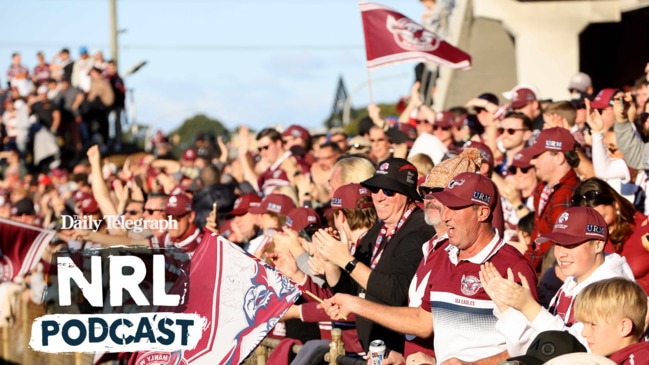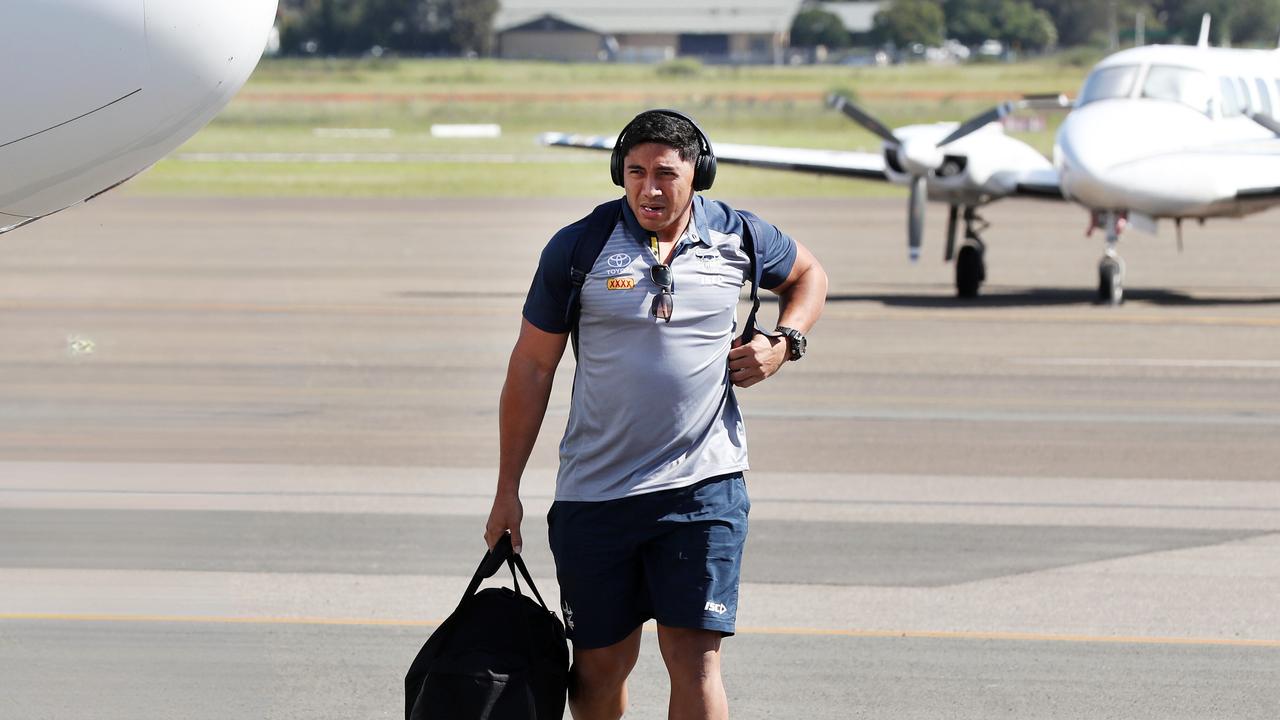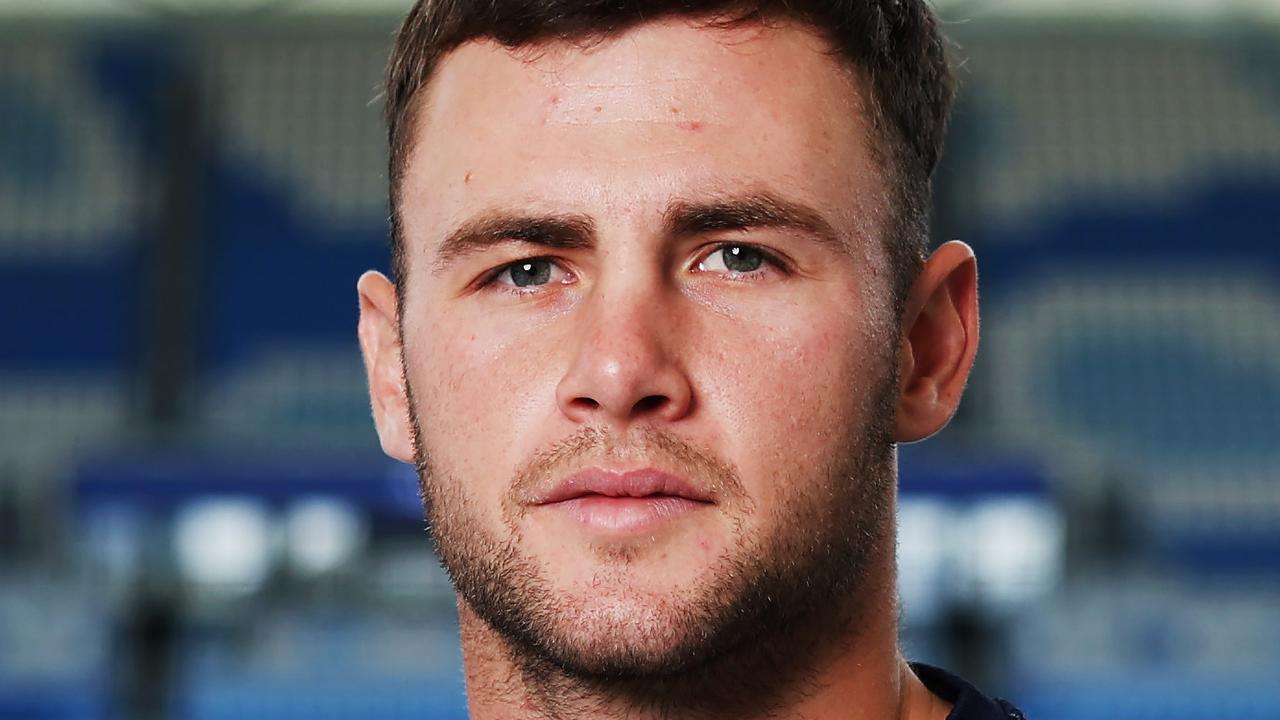NRL 2024: Peter V’landys reveals how 20-team premiership could work in 2028 | What’s the Buzz
Phil Rothfield sits down with ARL Commission chairman Peter V’landys to discuss how a 20-team competition would work, and it’s potential impact on when State of Origin would be played.

NRL
Don't miss out on the headlines from NRL. Followed categories will be added to My News.
Peter V’landys has spoken of a possible blueprint to fix State of Origin’s problematic scheduling, ease the punishing workload on NRL stars and fix the integrity of the NRL draw.
For the first time, the independent commission chairman has laid out the key details under the plan for a 20-team competition to be fast-tracked and up and running by 2028.
Some of the blueprint’s main points include:
• Clubs would play each other once over 19 rounds; reducing the workload on players by five games from the current 24 matches.
• The competition would either break mid-season for a stand-alone State of Origin series, or it would be played after the grand final.
• A regular international series would be played in October.

The above scenarios will be taken to broadcasters when negotiations soon begin for the NRL’s next TV deal, which starts in 2028.
V’landys will take the plan to get support and feedback from the 17 clubs, the players’ union and key stakeholders before final approval from the independent commission.
There is still much detail to be finalised, including creating the 10 timeslots (instead of eight) for broadcasters between Thursday and Sunday.
Having a second New Zealand team and a side based in Perth opens up new TV timeslots.
The option of a return to playing Monday night football – for the first time since 2016 – will also be considered.
DRAW INTEGRITY
“The biggest benefit of going to 20 teams is the fairer draw,” V’landys said.
“It’s something we can’t fix with the 17 teams. It’s a fact that some teams now have harder draws than others.
“Ivan Cleary said it during the week – the beauty of playing each other once is that it’s fair for every club. I agree with him. It’s the biggest benefit from having 20 teams.”
There would be 190 club games instead of the 204 we have now.

PLAYER WORKLOAD
Players would be required to play five fewer games each year.
They also won’t be expected to back up after a State of Origin match for their clubs.
Never again will we see the likes of Brisbane Broncos forward Patrick Carrigan have to cope with 80 minutes of Origin warfare – as he did in Game 3 this year – then play for his club just 48 hours later.
“I know the RLPA will welcome the 19-round format because it’s less stress and wear and tear on the players,” V’landys said.
“I agree we have to reduce their workload. The game is more physical than it’s ever been. I’m in awe of what the players can do in backing up from a game like the Origin decider.”
V’landys says the broadcasters will benefit, too, from having all available.
“They won’t cover games where the best 34 players in the competition are not playing,” V’landys said.
20-TEAM TIMING
It has been anticipated the Perth Bears will come into the competition for 2027.
Now we have a scenario where the 20 teams could be playing in 2028.
“It could definitely happen earlier than people think,” V’landys said.
“I don’t see why we can’t. No dates have been locked in. Everything is up for discussion. The next broadcast deal starts in 2028, and it makes sense to have everything in place by then.”

EXTRA PRODUCT
To extend the season by a week, the NRL could also look at a wildcard series between the teams placed seventh to 10th in the week leading up to the finals.
The winners would then go through to the finals series. The top six sides would be rewarded with a week off.
There is also a suggestion that after 19 rounds the clubs could break into five conferences to play another four matches.
This would allow clubs to play their blockbuster rivalry games such as Roosters v Rabbitohs and Broncos v Dolphins twice a year rather than once, although the integrity of the schedule would again be in question.
“All of these ideas will be discussed,” V’landys said.
The NRL will also look at putting more content around a stand-alone State of Origin.
This would include a women’s State of Origin series and an under-21s to showcase the best young players from the NRL clubs.
There is another option to play a Pacific series between Fiji, New Zealand, Tonga and Samoa at the same time.
“We’d get feedback from the clubs on all these possibilities,” V’landys said. “There are so many options available to us, and we’ll be looking at them all.”
More Coverage
Originally published as NRL 2024: Peter V’landys reveals how 20-team premiership could work in 2028 | What’s the Buzz





